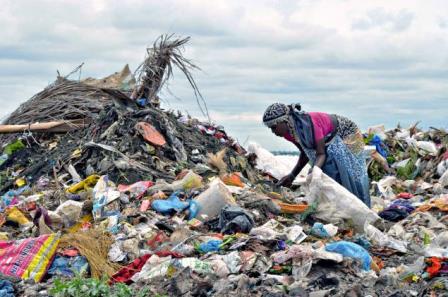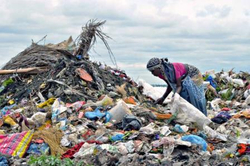The revised CPHEEO Solid Waste Management manual to be released soon!

ICLEI South Asia is supporting the Deutsche Gesellschaft für Internationale Zusammenarbeit (GIZ) GmbH, under their Indo-German Environment Partnership (IGEP) Program, in revising the existing CPHEEO manual on municipal Solid Waste Management (SWM) in order to better support political decision-makers, administrative staff, supervisors and service providers in implementing an integrated municipal solid waste management system throughout the country. ICLEI South Asia has been identified for supporting this process in the role of a national expert.
The first edition of the Manual was released by the MoUD in the year 2000 along with the Municipal Solid Waste (Management & Handling) Rules, 2000. After fourteen years, the Ministry of Urban Development recognized the need for the Manual to be updated to include new technologies and strengthened institutional structures in order to move towards sustainable waste management and is therefore being supported by the GIZ-IGEP programme in its revision.
“With rapid urbanization and changes of lifestyles, MSW has become a pressing problem resulting in severe environmental deterioration and aesthetic concerns. The estimates show that approximately 80% of the waste is being dumped in open spaces, posing a serious health hazard to citizens. The need of the hour is to adopt a financially sustainable and economically viable model for managing solid waste”, said Mr. Pramod Kumar, Director, MoUD, highlighting the importance of and need for a solid waste management manual.
The draft manual was discussed in several rounds of meetings with the Expert Committee, the working groups and with different stakeholders for arriving at a draft document for the GIZ team and submitted to the CPHEEO, MoUD, for further deliberations and finalization.
Based on discussions and suggestions from the MoUD, the draft revised manual will now be divided into three parts. Part I is the overall summary of the manual and provides an overview for decision makers while Part II is the main manual with 7 chapters and is comprehensive and addresses technical, managerial and institutional aspects of Municipal Solid Waste (MSW). Part III of the manual shall include all related annexures.
During the national stakeholder workshop, each chapter in the Draft Manual was presented to the audience by the GIZ Team and discussed upon. The key messages and innovations of the revised manual include:
- The manual focuses on waste minimization, and waste recycling, promoting the concept of Extended Producer Responsibility (EPR).
- The revised manual clearly mandates the source segregation of waste into two fractions – dry and wet and a third fraction which includes domestic hazardous waste, where possible.
- The manual focuses on institutional strengthening, emphasizes data collection and analysis which is a pre-requisite for financial sustainability of the MSWM system.
- In the technology overview, the revised manual discusses the feasibility of adopting different collection/treatment and processing technologies. Options for collection, transportation, processing and disposal including preferred options such as recycling options, composting of biodegradables and co-processing of the dry fraction of MSW are all described in detail.
- Guidance on centralized vs. decentralized MSWM is given. The manual also clearly addresses the integration of informal sector right from the planning stage.
- The strong need to generate awareness through IEC activities and the importance of training to strengthen institutional capacities are also discussed.
The draft manual is currently being revised to include relevant suggestions from the Ministry and other stakeholders.
